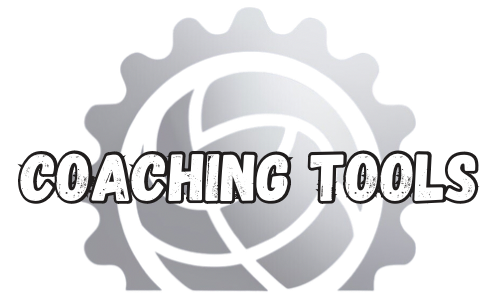
|
Dealing with Common Challenges in Coaching Volleyball
| |

1. Player Motivation: Motivating players to give their best effort can be a recurring challenge. To address this, consider: • Setting clear and achievable goals. • Recognizing and rewarding hard work and progress. • Establishing a positive and enthusiastic coaching environment. 2. Dealing with Losses: Losing is a part of sports, but it can be difficult to manage for both coaches and players. Strategies to handle losses include: • Encouraging players to focus on what they can learn from defeat. • Conducting post-game discussions that emphasize growth and development. • Keeping losses in perspective by acknowledging that they are part of the journey. 3. Balancing Skill Development and Game Strategy: Coaches often face the challenge of balancing skill-building practices with game strategy . To address this, divide practices into segments: • Allocate time for skill development, focusing on individual and team skills. • Incorporate game-like scenarios to apply those skills in a strategic context. 4. Managing Diverse Personalities: Volleyball teams are composed of players with diverse personalities and backgrounds. To manage these differences: • Emphasize teamwork and mutual respect. • Encourage open communication and address conflicts promptly and constructively. • Tailor your coaching style to individual players to maximize their potential. 5. Player Fatigue and Injuries: Managing player fatigue and injuries is an ongoing concern. Strategies for addressing this challenge include: • Implementing appropriate warm-up and cooldown routines. • Rotating players to ensure rest and recovery. • Seeking professional guidance to prevent and treat injuries. 6. Adapting to Rule Changes: Volleyball rules evolve, and coaches must stay informed and adapt to these changes. Keep up with rule modifications and educate your team accordingly. 7. Parent and Team Dynamics: Interactions with parents and team dynamics can occasionally pose challenges. Create clear guidelines and expectations for parents’ involvement, and maintain a positive team culture. 8. Time Management: Balancing coaching responsibilities with personal life can be demanding. Effective time management, scheduling, and delegation can help coaches maintain a healthy work-life balance. 9. Handling Criticism: Coaches may face criticism from players, parents, or fans. Use criticism as an opportunity to self-reflect and improve. Constructive feedback can lead to growth. 10. Burnout: Coaching can be emotionally and physically demanding. To prevent burnout: • Prioritize self-care and well-being. • Consider sharing coaching duties or seeking assistance when needed. Conclusion: Coaching volleyball is a dynamic role that comes with its unique set of challenges. By understanding and addressing these common issues with a positive and adaptable approach, coaches can create an environment that fosters player development, teamwork, and a passion for the game. Challenges are an inherent part of coaching, but they also offer opportunities for growth and improvement for both coaches and players. |

 Purchase Ebook on Amazon Purchase Ebook on Amazon
|
Volleyball techniques Volleyball strategies Volleyball drills Volleyball skills Volleyball fundamentals Volleyball tips Volleyball training Volleyball coaching Volleyball playbook Volleyball exercises Volleyball equipment Volleyball gear Volleyball practice Volleyball coaching tips Volleyball playing tips Volleyball tutorials Volleyball lessons Volleyball techniques for beginners Volleyball skills development Volleyball coaching tools Volleyball teaching aids Volleyball improvement tips








